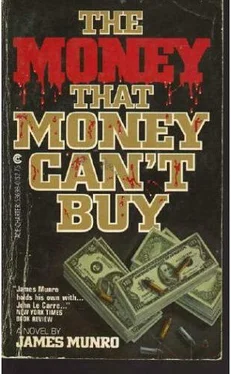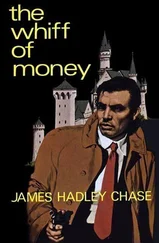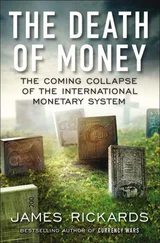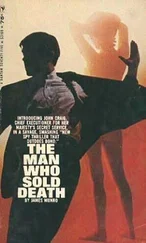James Munro - The Money That Money Can't Buy
Здесь есть возможность читать онлайн «James Munro - The Money That Money Can't Buy» весь текст электронной книги совершенно бесплатно (целиком полную версию без сокращений). В некоторых случаях можно слушать аудио, скачать через торрент в формате fb2 и присутствует краткое содержание. Жанр: Старинная литература, на английском языке. Описание произведения, (предисловие) а так же отзывы посетителей доступны на портале библиотеки ЛибКат.
- Название:The Money That Money Can't Buy
- Автор:
- Жанр:
- Год:неизвестен
- ISBN:нет данных
- Рейтинг книги:4 / 5. Голосов: 1
-
Избранное:Добавить в избранное
- Отзывы:
-
Ваша оценка:
- 80
- 1
- 2
- 3
- 4
- 5
The Money That Money Can't Buy: краткое содержание, описание и аннотация
Предлагаем к чтению аннотацию, описание, краткое содержание или предисловие (зависит от того, что написал сам автор книги «The Money That Money Can't Buy»). Если вы не нашли необходимую информацию о книге — напишите в комментариях, мы постараемся отыскать её.
Agent Craig is one hunk of a killing machine, smooth, professional, amoral, unquestioning. And the real drama comes after his masculinity has been almost severed. Will he turn on his manipulating department head Loomis? In the meantime he's successfully kidnapped a Russian agent and subsequently teamed up with other Russian agents to stop an anti-Soviet organization planning to flood the market with phoney money. But the slapdash action turns out to be equally counterfeit and the psychodrama Just so much spy schmaltz.
The Money That Money Can't Buy — читать онлайн бесплатно полную книгу (весь текст) целиком
Ниже представлен текст книги, разбитый по страницам. Система сохранения места последней прочитанной страницы, позволяет с удобством читать онлайн бесплатно книгу «The Money That Money Can't Buy», без необходимости каждый раз заново искать на чём Вы остановились. Поставьте закладку, и сможете в любой момент перейти на страницу, на которой закончили чтение.
Интервал:
Закладка:
"Not quite," Loomis said. "The way I see it, Driver was chasing Brodski—only he got too close."
"You think Driver had something on Brodski? And the twenty-dollar bill was a way of letting him know?"
"Didn't you say he'd lost money just before he went to Brodski's club, and two days later he paid up?"
"That's right," said Craig. "So Driver double-crossed his bosses."
"Ah," said Loomis. "I wonder if his bosses were Krauts?"
"It's possible," said Craig.
"It is indeed," said Loomis dreamily. "It's even possible he belongs to the West German Defense of Constitution."
"Driver was an agent?"
"Not a very good one," said Loomis. "He died."
Craig had met operators from the Defense of Constitution before. They did counterintelligence work, and did it well. Hard, arrogant, efficient as Deutschmarks, all four hundred of them. Mostly they stayed in West Germany and hunted foreign spies, particularly Russians. Sometimes they went further afield. Driver had gone too far.
"Where do they come in?" asked Craig. "Those Defense of Constitution boys don't like to get too far from home. They play too rough."
"They got one sacred symbol, you see," Loomis said. "Like a cow to a Brahmin, like Mecca to an Arab, that's the Deutschmark to a West German."
"Money," said Craig. "This case is all money. Dollars and Deutschmarks."
"At least they've chosen the good stuff," said Loomis.
They parked in the VIP car area, and boarded their Comet with minutes to spare. Loomis had insisted on traveling first class, and finished the champagne lunch to the last crumb and the last drop. His passport declared him to be a business executive. He talked all the way of golf, electrical appliances, and the total absence of good tea in Paris. Craig, also a business executive, confined himself to agreement. He knew that he was junior to Loomis. They landed at Orly Airport to find a warm spring day and a pale-blue Citroen. The English driver came over to them, shook hands with them, and took them at once to the car. Inside it, on the back seat, were two parcels: one squat, square and heavy, the other flexible and shapeless. The driver immediately pulled away and got onto the highway to Paris, and Loomis fretted about how the rest of the world drives on the wrong side of the road. Craig put the two parcels into his raincoat pockets; soon they stopped at a cafe. Craig went at once to the toilet, locked the door of his stall, and removed his raincoat and jacket, then quickly untied his parcels. The flexible one was a holster of black leather, the hard one a Smith and Wesson Chiefs Special with a two-inch barrel—the right gun for the job, not all that accurate over too great a distance but a stopper. If you got hit with that you didn't get up. Craig put his jacket and coat back on, stuck the wrapping paper in the gun's box and then the box in his pocket, flushed the toilet, and went out, cutting short the clamors of the woman at the door with a half-franc borrowed from the driver. He drank the coffee Loomis ordered for him, and they drove on into springtime Paris, with the chestnut trees and the Eiffel Tower, and the Arc de Triomphe, the Invalides, and the biggest traffic jams in Europe. But at last they reached the Madeleine, walked around the corner to the Thomas Cook offices, and bought two tickets to Versailles.
They went there in a bus, a big Facel Vega with a sunshine roof and its full complement of tourists. Loomis chose a seat in the middle and put Craig next to the window, then peered past him dutifully as the guide called out the place names all had paid so much to see. At last, when even the television center had been passed and there was nothing more to look at, Loomis spoke softly to Craig.
"He asked for Versailles," Loomis said. "Bloody culture snob. Could have had a nice bit of lunch at the Tour d'Argent. God knows he can afford it."
"Who?" asked Craig.
"Chelichev," said Loomis.
Chelichev was head of the Executive Division of the KGB—the Committee for State Security. Before Beria's death he had headed the GRU, which is Army Intelligence, but after that colossal shakeup he had been transferred, and now he was the only military man in a nonmilitary organization. He held the rank of lieutenant-general. "He rarely leaves Russia." Craig said so.
"He goes when he has to," said Loomis. "Like me. We got something he wants, so he comes to France."
"Not England?"
"He doesn't want it that bad," said Loomis.
"Anyway, he's probably got a deal on with the Frenchies as well."
"What about?" Craig asked.
"Morocco," said Loomis. He would say no more.
They drove on to Versailles, and listened while the guide reeled off facts and figures, lagging behind as the group trudged through stateroom after stateroom; they wondered what it must have been like before the mob smashed its way in and took the gold away. By the time they reached the Hall of Mirrors, they were alone, and Chelichev was waiting for them.
He was a tall man with silvery hair and blue eyes, dressed in light, elegant tweeds like a Frenchman's idea of an officer in the guards. The briefcase he carried was like the extension of his hand. His face was leathery, handsome, and very masculine. To the inexpert, he might have been a male model who specialized in whisky ads; to Craig, he was an expert who specialized in death. With him he had one man, tall, thick-muscled, with cautious eyes and hands conspicuously displayed in front of him, as Craig's were. Craig knew all about that man as soon as he saw him. He was looking at himself.
The moves that followed were as formal as a ballet. The two pairs of men advanced from opposite ends of the great room, and after ten paces Craig and the thick-muscled man turned and walked to the windows in the embrasures that overlooked the canal, turned again and, each unseen by the other, watched their principals meet, fall in side by side and patrol the room, Loomis with his tall, square bowler rammed down hard on his head, Chelichev swinging his briefcase. Chelichev seemed to do most of the talking. From time to time Loomis spoke. Usually it was a monosyllable, and he seemed to be enjoying it. The Russian's face was impassive, but his arguments never stopped. At last Loomis seemed to agree, and Chelichev's arguments ceased. The two men walked back to the center of the room, then each crossed to the embrasure where his man was waiting. Loomis's face glistened with sweat, but he kept his hat on.
Their tour group came back, and they went out again, back to Paris, invulnerably embedded in humanity. The Citroen waited for them in the Place de la Madeleine, and drove them back to Orly Airport. At the last moment, Craig took out the Smith and Wesson, unstrapped the holster, and left them both in the box and wrapping they came in.
"Tidy," said Loomis.
Craig had no idea who bodyguarded them at the airport or on the plane. They were the best Loomis had and hence invisible. Once more they talked of golf, electrical appliances, and the total absence of good coffee in London, until they were through Customs, out of the Europa building, and inside Loomis's car.
Craig said: "That briefcase Chelichev carried. He's got you on tape."
"Ah," said Loomis, and carefully removed his hat, wiped his sweating forehead. Inside the hat's high dome was a tape recorder.
"Made it myself," said Loomis. "Bit of.a hobby."
One enormous finger stabbed into the hat with a forceful accuracy that was entirely Loomis, and Craig tried not to think of Freud, as a tiny motor whirred, and first Chelichev's voice spoke; then Loomis'. Both men talked in German.
"His idea," Loomis said. "Seemed to think it was funny. Matter of fact it was."
His driving on the way back to Queen Anne's Gate was atrocious.
* * *
The two men studied transcripts of the taped conversation, and the text of Chelichev's speech was at first a raging anger. The typewritten words burned on the page. And yet, Craig remembered, Chelichev himself had given no sign of anger; had never looked other than reasonably, gently persuasive while he blasted Loomis with one threat after another, demanding Calvet back, and Loomis, equally gentle, had said no. Chelichev had shifted then, as their images had blurred from one mirror to another, Craig remembered. If they couldn't have Calvet back, they wanted him dead, and again Loomis said no. Loomis was being impossibly difficult, Chelichev had said, but never mind. He'd go further. Department K didn't have to do it. All Loomis need do was set Calvet up and Chelichev would arrange the death himself, and Loomis had asked why.
Читать дальшеИнтервал:
Закладка:
Похожие книги на «The Money That Money Can't Buy»
Представляем Вашему вниманию похожие книги на «The Money That Money Can't Buy» списком для выбора. Мы отобрали схожую по названию и смыслу литературу в надежде предоставить читателям больше вариантов отыскать новые, интересные, ещё непрочитанные произведения.
Обсуждение, отзывы о книге «The Money That Money Can't Buy» и просто собственные мнения читателей. Оставьте ваши комментарии, напишите, что Вы думаете о произведении, его смысле или главных героях. Укажите что конкретно понравилось, а что нет, и почему Вы так считаете.












